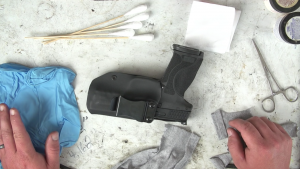Baiting deer is a hotly debated topic among hunters, wildlife managers, and conservationists. In many states, regulations vary widely—some places allow it under strict conditions, while others ban it entirely. If you’ve ever wondered, “Is baiting deer legal in your state?” this article aims to offer clarity and help you make informed decisions.
What We'll Cover
- What Is Deer Baiting?
- Why the Controversy?
- State-by-State Overview
- Practical Tips for Legal and Ethical Hunting
- 1. Confirm Your Local Regulations
- 2. Limit Disease Risk
- 3. Adhere to Quantity Limits
- 4. Time Your Baiting Activities
- 5. Practice Fair Chase
- People Also Ask
- Is Baiting Deer Legal in Your State if You Own Private Land?
- How Does Baiting Compare to Food Plots?
- Are Attractants Other Than Food Allowed?
- Conclusion: Stay Informed, Hunt Responsibly
Below, you’ll find detailed explanations of baiting rules, how they differ from feeding regulations, and key considerations for ethical hunting practices. We’ll also share reputable sources, essential tips, and resources to stay compliant. By the end, you’ll know exactly where to look and what steps to take before setting out on your next hunt.
What Is Deer Baiting?
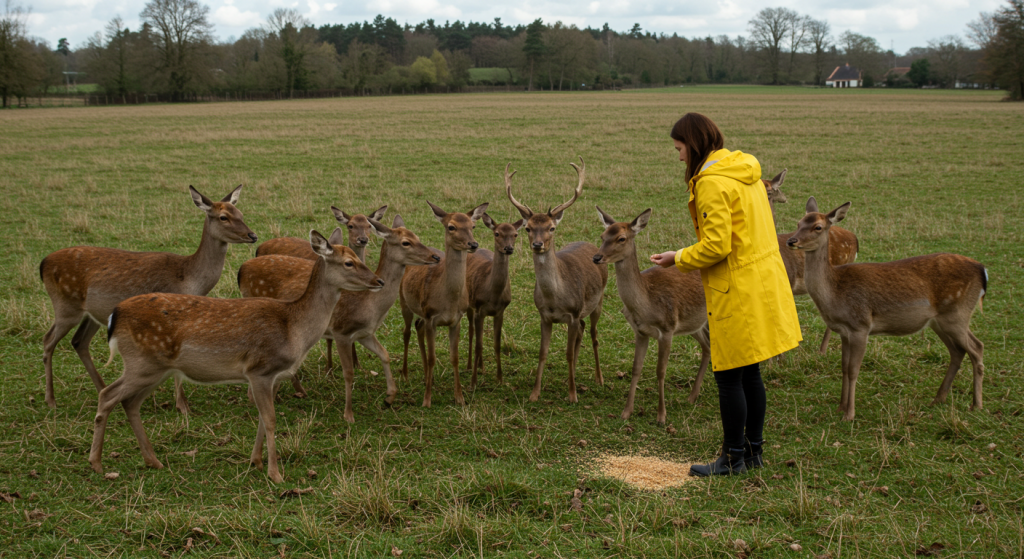
Deer baiting generally involves placing food or other attractants—such as corn, minerals, or specialized feed—in an area to lure deer closer. According to the U.S. Fish & Wildlife Service, this practice can influence deer movement and behavior, impacting herd health and local ecosystems.
Key Point: Baiting differs from feeding in that baiting is usually tied to a hunting purpose, whereas feeding can be recreational or for wildlife viewing. However, many states blend or closely associate these terms in their regulations.
Why the Controversy?
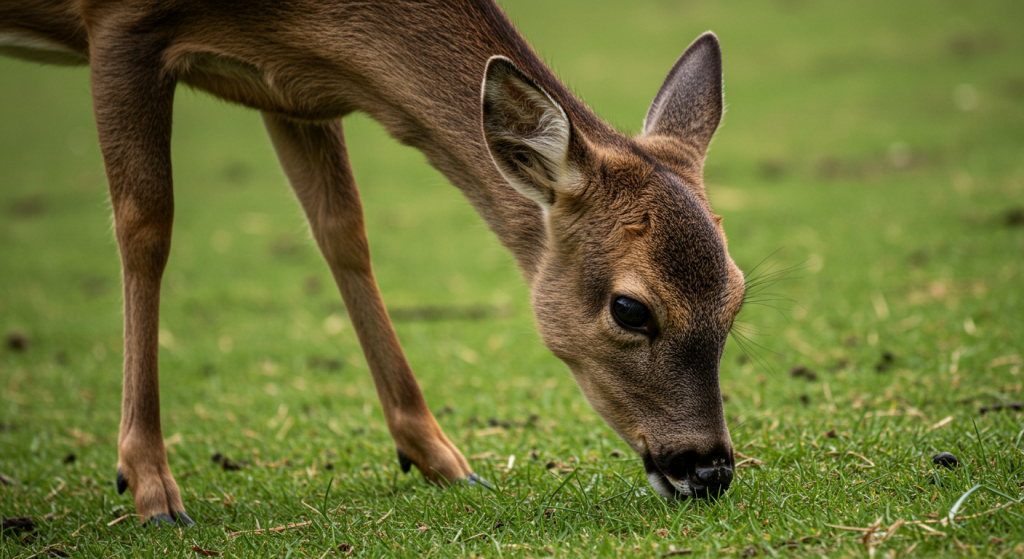
The debate stems from the ethical, ecological, and health considerations of altering natural deer behavior:
- Ethical Concerns: Some hunters believe baiting provides an unfair advantage. Others argue it helps with population control.
- Disease Management: Congregating deer around a feeding site can increase the spread of chronic wasting disease (CWD) or bovine tuberculosis.
- Environmental Impact: Excessive feeding can disrupt natural foraging patterns and harm local vegetation.
If you’ve asked yourself, “Is baiting deer legal in your state?” it’s vital to consider the biological and ethical factors before setting bait piles.
State-by-State Overview
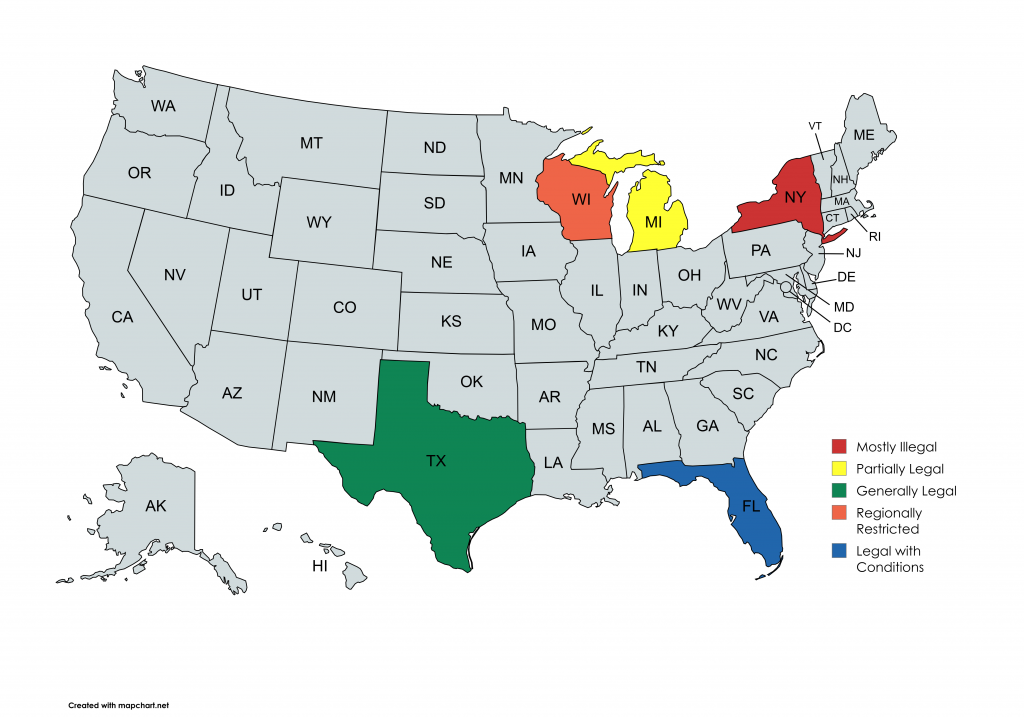
Regulations vary widely and often change. Always consult your state’s wildlife agency or official hunting guide for the latest information. Below is a sample table highlighting different stances across a few regions to illustrate the variety of rules. (This is not exhaustive; for the most up-to-date data, visit your state’s Department of Natural Resources or equivalent agency.)
| State | General Stance | Notes |
|---|---|---|
| Michigan | Partially Legal | Legal in some areas with quantity limits; banned or heavily restricted in CWD zones. |
| Texas | Generally Legal | Widely permitted, but special rules may apply on public lands. |
| Wisconsin | Regionally Restricted | Allowed in certain counties unless CWD is detected; check local bans and feed quantity limits. |
| New York | Mostly Illegal | Baiting for hunting is prohibited statewide, though feeding is sometimes allowed off-season. |
| Florida | Legal with Conditions | Allowed on private property, but you must follow specific distance requirements from the feeding area. |
Important: Laws can change from season to season based on disease outbreaks and population studies. Always verify current regulations before placing bait.
Practical Tips for Legal and Ethical Hunting
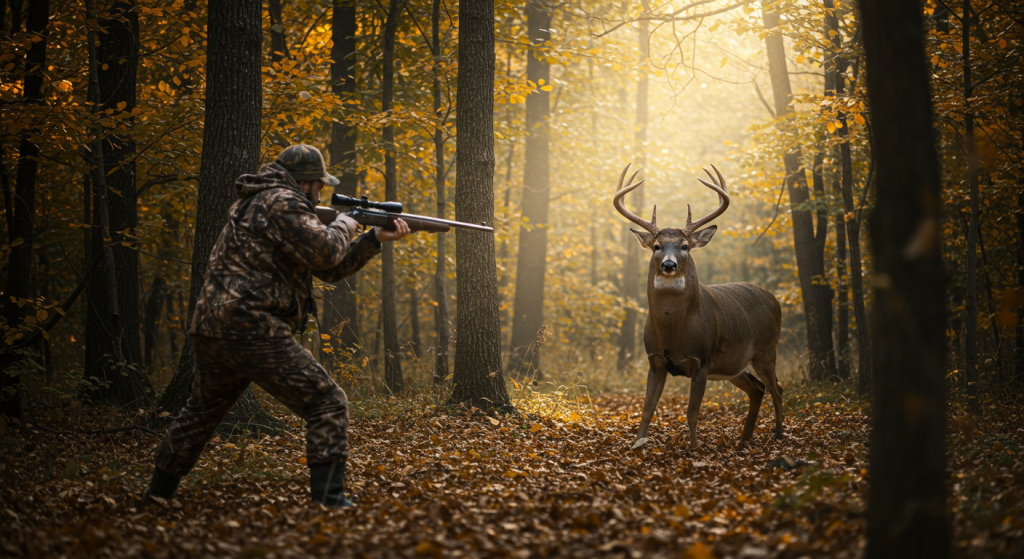
1. Confirm Your Local Regulations
Before you set out feed or attractants, confirm Is baiting deer legal in your state? or county. Wildlife agencies maintain updated regulations on their websites. A quick phone call to a local game warden or a visit to your state’s Department of Natural Resources website can clear up most questions.
-
Official Resources:
- U.S. Fish & Wildlife Service
- State wildlife agency websites (e.g., Michigan DNR, Texas Parks & Wildlife)
2. Limit Disease Risk
One of the biggest drawbacks of baiting deer is the potential spread of disease. When deer congregate around a bait station, they share saliva and surfaces, which can spread chronic wasting disease (CWD) and other illnesses.
- Use Dispersed Feeding Tactics: Instead of large, concentrated piles, spread out small amounts over a broader area.
- Regularly Clean Bait Sites: If you’re using a feeder, make sure to sanitize it and remove moldy or old feed promptly.
3. Adhere to Quantity Limits
Some states limit the amount of feed you can place at a site. For instance, Wisconsin often restricts feeding to two gallons or less at a single location. Exceeding the limit can result in hefty fines.
4. Time Your Baiting Activities
Even if it’s legal, some states restrict when you can bait. For instance, certain jurisdictions only allow baiting outside of firearm hunting seasons. Others permit off-season feeding but prohibit any form of attractant during active hunting weeks.
- Pro Tip: Check how many days before the season you must remove bait to comply with local rules.
5. Practice Fair Chase
Many hunters value the principle of “fair chase.” This ethical guideline aims to minimize any artificial advantage that a hunter might gain over the animal. Even if you find baiting beneficial, consider using minimal attractants or focusing on habitat improvements like food plots. This approach can improve the environment for multiple species.
People Also Ask
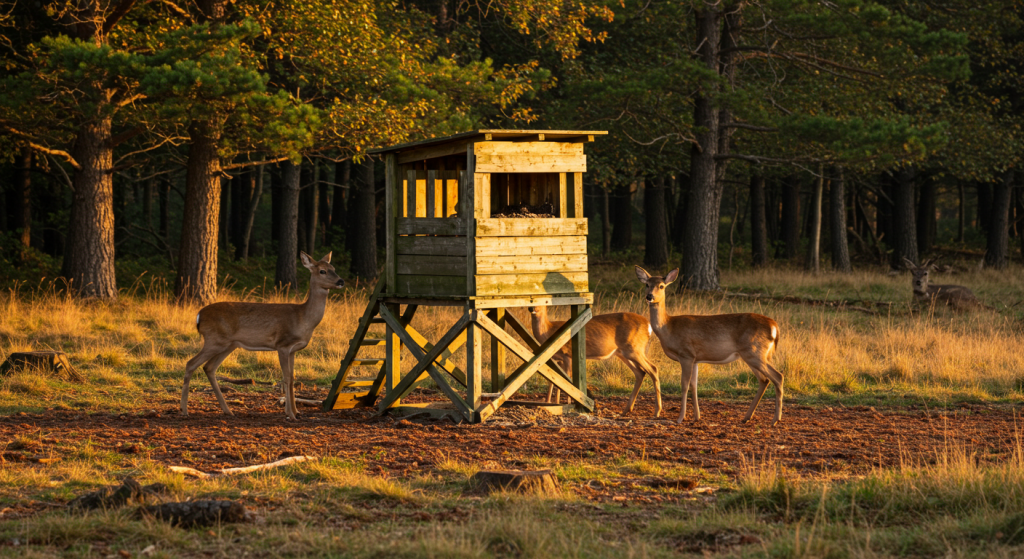
Is Baiting Deer Legal in Your State if You Own Private Land?
Owning private land does not grant immunity from state hunting regulations. Many states have different rules for public versus private property, but all hunters must comply with the law. Always confirm current private-land exceptions, if any, through official channels like your state’s hunting handbook.
How Does Baiting Compare to Food Plots?
Food plots are areas where hunters cultivate crops (e.g., clover, alfalfa, brassicas) specifically to attract deer. This is often considered more “natural” than baiting because deer can browse over a larger area, reducing the risk of disease transmission. While some states treat food plots differently than bait sites, others may still regulate how or when you can hunt near them.
Are Attractants Other Than Food Allowed?
Mineral blocks, salt licks, and even scent-based attractants fall under the broader umbrella of deer baiting in some states. Check your local laws to confirm whether using salt licks or mineral supplements is permitted and under what conditions. Some areas ban them outright due to disease transmission concerns.
Conclusion: Stay Informed, Hunt Responsibly
Asking “Is baiting deer legal in your state?” is not just about avoiding penalties. It’s about practicing ethical, responsible, and sustainable hunting. By researching your state’s regulations, adhering to quantity and timing restrictions, and considering the broader impact on deer populations, you can help maintain a balanced ecosystem.
Key Takeaways:
- Regulations Vary: Always confirm laws in your specific region, as what’s allowed in one county may be banned in another.
- Stay Ethical: Even where legal, consider balancing baiting with fair chase principles and habitat improvements.
- Protect Wildlife Health: Reduce disease transmission by spacing out feed, keeping bait sites clean, and following local rules for timing and quantities.
Whether you’re a seasoned hunter or new to the sport, keeping these points in mind ensures you’re part of a responsible hunting community. For official guidelines, visit your local fish and wildlife agency’s website, review current hunting digests, or consult recognized national resources like the U.S. Fish & Wildlife Service.
Now that you know the ins and outs, you can confidently answer the question, “Is baiting deer legal in your state?” Remember: laws evolve, so stay up-to-date to enjoy a safe, ethical, and successful hunting season.
The responses below are not provided, commissioned, reviewed, approved, or otherwise endorsed by any financial entity or advertiser. It is not the advertiser’s responsibility to ensure all posts and/or questions are answered.
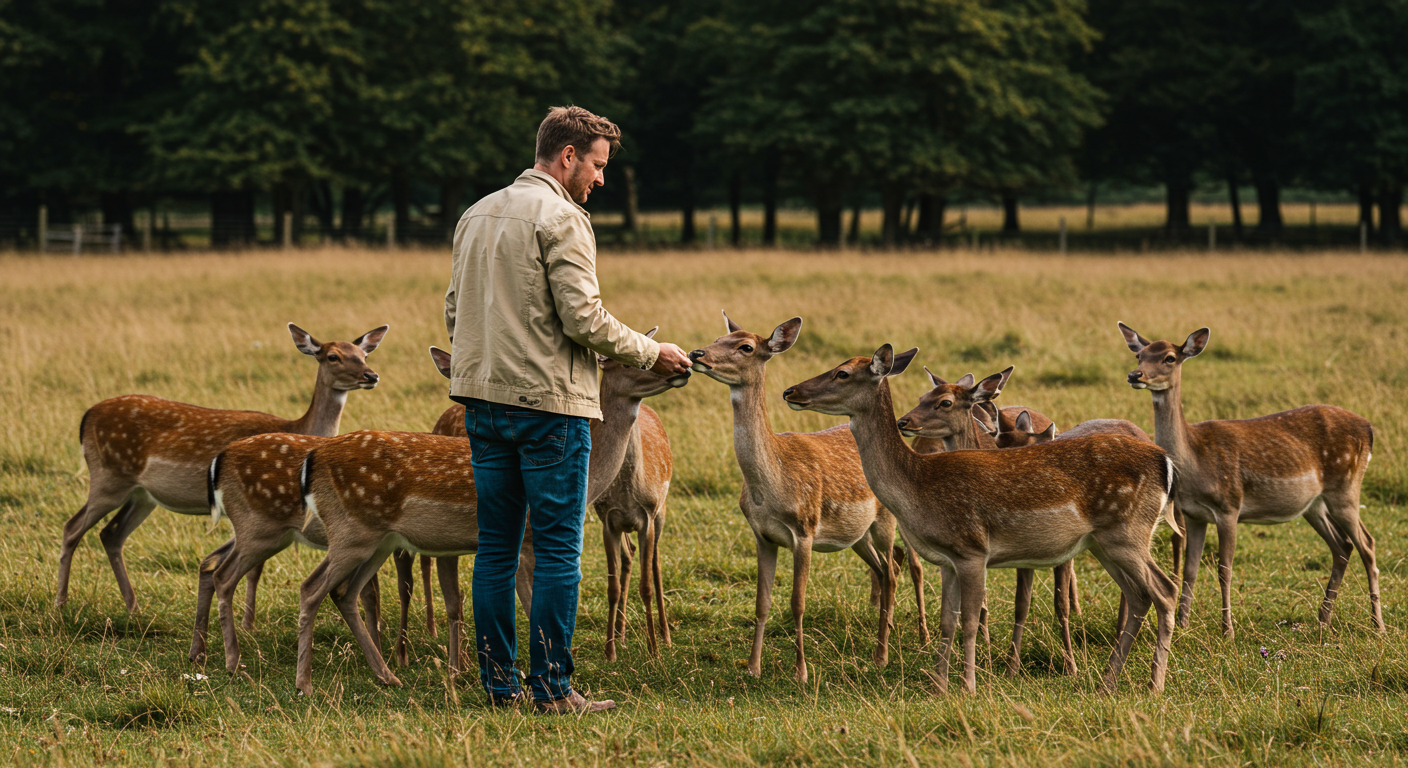


![What Optics Will Fit The Springfield Hellcat? [Best & Cheapest Options Here]](/assets/images/95efdc2ad27c763b47d32254454ece37.png)

